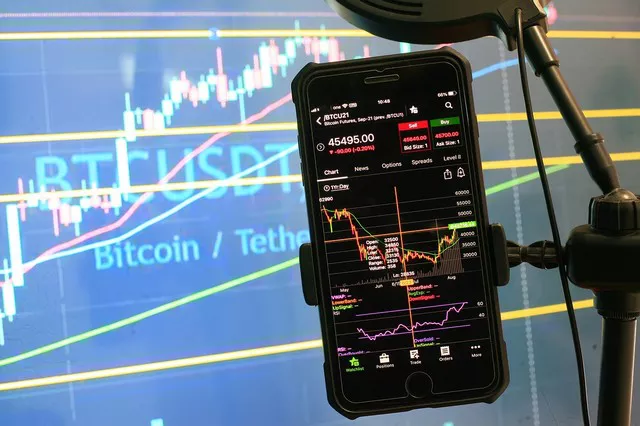In the world of financial markets, both futures and stocks are prominent investment options that attract a diverse range of participants. Investors and traders often grapple with the question of whether futures are riskier than stocks, as both instruments carry distinct characteristics and potential pitfalls.
1. Understanding Futures Contracts
Futures contracts are derivative instruments that obligate participants to buy or sell an underlying asset at a predetermined price and date in the future. These contracts serve as a means of speculation, hedging, and portfolio diversification. Futures are used to gain exposure to various asset classes, including commodities, currencies, indices, and interest rates.
The nature of futures contracts introduces a layer of risk stemming from the contractual obligations. The obligation to fulfill the terms of the contract, regardless of market conditions, can lead to potential losses if the market moves against the position. This risk is further magnified by the leverage inherent in futures trading, where a small price movement can result in substantial gains or losses.
2. Stocks: Ownership in Companies
Stocks, on the other hand, represent ownership in a company. When an individual purchases shares of a company’s stock, they become partial owners and have a claim on the company’s assets and earnings. Stocks offer investors the potential for capital appreciation and dividends, reflecting the company’s financial performance and growth prospects.
The risk associated with stocks lies in the company’s performance and market sentiment. If the company faces financial difficulties, poor management, or adverse market conditions, the value of the stock can decline. However, unlike futures contracts, owning stocks does not entail contractual obligations with fixed expiration dates.
3. Volatility and Market Exposure
Volatility is a key aspect of risk assessment in both futures and stocks. Futures contracts, due to their leverage and fixed expiration dates, can experience heightened price volatility. Market sentiment, economic data releases, and geopolitical events can lead to rapid and significant price fluctuations in futures contracts.
Stocks also experience volatility, influenced by company-specific news, earnings reports, and broader market trends. While stocks do not carry the same level of leverage as futures, their value can be subject to substantial changes over time.
4. Diversification and Risk Management
Diversification is a crucial strategy for managing risk in both futures and stocks. Diversifying a portfolio across different asset classes and sectors can mitigate the impact of adverse market movements on overall performance.
In the context of futures, diversification can involve trading contracts from various asset classes to spread risk. Investors can hold positions in commodities, currencies, and indices to reduce their exposure to the risks associated with a single asset.
For stocks, diversification can be achieved by holding shares of companies across different industries and geographic regions. A well-diversified stock portfolio can cushion the impact of poor performance from individual stocks.
5. Leverage and Capital Requirements
Leverage is a factor that contributes to the perceived riskiness of futures contracts. Futures trading typically involves a margin deposit, which is a fraction of the contract’s total value. This allows traders to control a larger position with a smaller upfront investment, amplifying both potential gains and losses.
Stock trading, while not as leveraged as futures, can still involve the use of margin accounts. However, margin requirements for stocks are generally lower than those for futures contracts, reducing the potential for extreme losses associated with high leverage.
6. Short Selling and Unlimited Losses
Futures contracts offer the ability to short sell, allowing traders to profit from declining markets. Short selling involves selling a contract with the expectation of buying it back at a lower price. However, short selling introduces the risk of unlimited losses if the market moves against the trader’s position.
In stock trading, short selling is also possible but comes with certain restrictions and regulations. The risk of unlimited losses associated with short selling can be mitigated by utilizing stop-loss orders and carefully managing positions.
7. Market Hours and Liquidity
The trading hours and liquidity of futures and stocks differ significantly. Futures contracts are traded on organized exchanges and have specific trading hours, often extending beyond regular market hours. This extended trading window can expose traders to overnight risk, as market-moving events can occur when the futures market is open while stock markets are closed.
Stocks are traded on stock exchanges during regular market hours, providing a more predictable trading environment. However, after-hours trading for stocks is becoming more prevalent, allowing investors to react to news and events outside of standard market hours.
8. Regulatory Environment and Counterparty Risk
The regulatory environment surrounding futures and stocks also contributes to their risk profiles. Futures contracts are subject to regulatory oversight by exchanges and regulatory bodies, helping to ensure fair and transparent trading practices. Additionally, the risk of counterparty default in futures trading is mitigated by the use of clearinghouses that act as intermediaries between buyers and sellers.
Stock trading operates within a well-established regulatory framework as well, with investor protections in place. The risk of counterparty default is generally lower in stock trading due to the centralized clearing and settlement systems employed by stock exchanges.
Conclusion
The question of whether futures are riskier than stocks involves a nuanced assessment of the characteristics, market dynamics, and trading strategies associated with each instrument. While futures introduce the element of contractual obligations, leverage, and potential for rapid price fluctuations, stocks carry risks related to company performance, market sentiment, and price volatility.
The perceived riskiness of futures and stocks depends on the individual investor’s risk tolerance, trading objectives, and knowledge of the instruments. Both futures and stocks offer opportunities for diversification, risk management, and potential returns, but the choice between the two depends on careful consideration of the associated risks and rewards. As with any investment decision, conducting thorough research, seeking professional advice, and developing a well-defined trading or investment strategy are essential steps toward navigating the complexities of the financial markets.


